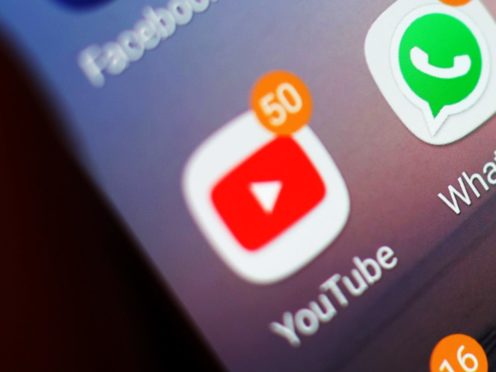The head of the British Phonographic Industry has said YouTube is paying only “a tiny fraction” of what it should in music-streaming revenue.
Geoff Taylor, chief executive of the record labels association, told MPs there had been a “massive underpayment” by the Google-owned website compared with rivals including Spotify and Amazon Music.
He spoke during a meeting of the Digital, Culture, Media and Sport Committee, which is carrying out an inquiry into the economic of streaming.
The BPI has argued there should be no extension of safe harbour to YouTube – a view echoed during the inquiry by musicians including Tom Gray of the Broken Record group.
In our #MusicStreamingInquiry session, we're questioning:
🎵Geoff Taylor, @bpi_music🎵Roberto Neri, @the_MPA🎵Horace Trubridge, @WeAreTheMU🎵Graham Davies, @IvorsAcademy
🎵Katherine Oyama, YouTube🎵Raoul Chatterjee, SoundCloud🎵Steve Bené, Twitch https://t.co/dgNJgBO5Yr
— Digital, Culture, Media and Sport Committee (@CommonsDCMS) February 10, 2021
The laws in question govern online services hosting user-generated content and spare them from liability for copyrighted content being uploaded, as long as they remove it when notified.
Asked whether YouTube’s risk and reward were balanced, Mr Taylor said: “They have established and run a platform. That involves some element of risk.
“But we think the ratio of their risk and reward is out of kilter because they are growing this business as part of an enormous advertising empire across all of Google’s services and yet they are paying such a tiny fraction.
“The differential between what YouTube pays and what Spotify and Amazon Music and other services pay is so huge – and that is entirely caused by the fact that their position on the safe harbour is that they don’t necessarily need a licence when their users upload.
“They could operate without a licence. That has resulted in a massive underpayment by YouTube to the music industry.”
Mr Taylor said that in 2020 the BPI received “something like £35 million in the UK for all the tens of billions of views of music videos” which he said were largely on YouTube.
He said that was “about half what we earn from selling vinyl records – that can’t be right and to me I don’t recognise the projections YouTube has”.
YouTube has claimed it is on course to become the industry’s main source of revenue in five years.
So far there have been no appearances before the committee by executives from Amazon Music, Spotify or Apple Music.
A representative of YouTube is due to appear later in the session.
